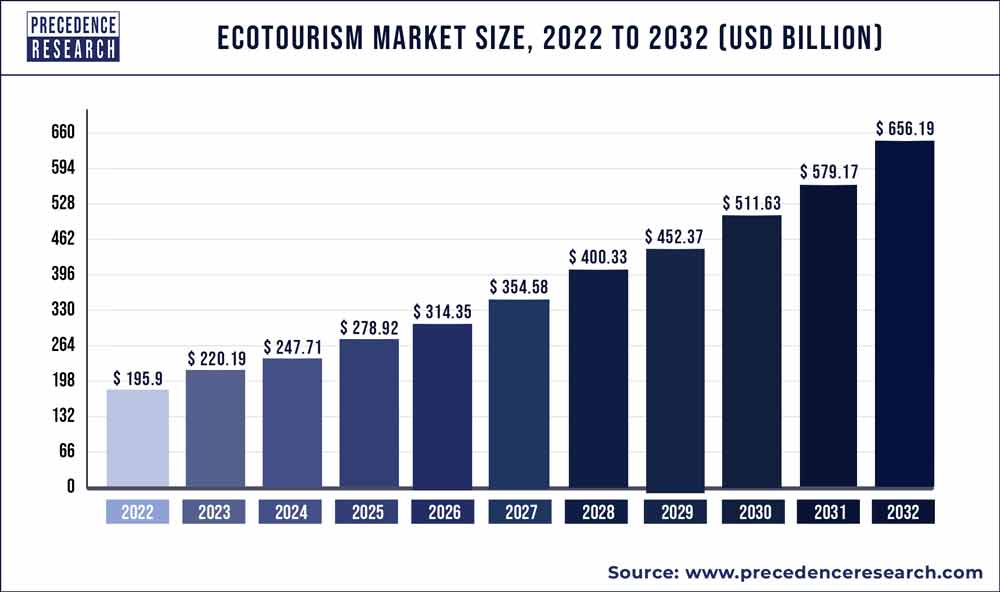The Future of Eco-Friendly Tourism: Predictions and Trends

Introduction:
As global awareness of environmental issues continues to grow, the travel industry is undergoing a transformative shift towards sustainable and eco-friendly practices. Travelers are increasingly seeking experiences that minimize their ecological footprint and contribute positively to local communities. In this exploration, we will delve into the predicted future of eco-friendly tourism, examining emerging trends and innovations that are set to shape the industry in the years to come.
1. **Rise of Regenerative Travel: Going Beyond Sustainability**
While sustainability has been a buzzword in the travel industry, the future belongs to regenerative travel. Unlike traditional sustainable practices that aim to maintain the status quo, regenerative travel seeks to actively improve and restore ecosystems. Travelers will choose experiences that leave a positive impact on the environment, supporting initiatives like reforestation, wildlife conservation, and community development.
2. **Carbon-Neutral Travel: Offsetting Emissions as Standard Practice**
The concept of carbon-neutral travel will become mainstream, with both individuals and travel companies taking responsibility for their carbon emissions. Travelers will actively seek out companies that offset their carbon footprint through investments in renewable energy projects, afforestation, and other initiatives. The demand for transparent reporting on carbon neutrality efforts will drive the industry towards greater accountability.
3. **Green Accommodations: Eco-Friendly Stays as the Norm**
Eco-friendly accommodations will no longer be a niche market but a standard expectation. Hotels, resorts, and lodges will adopt green practices, including energy-efficient designs, waste reduction programs, and sustainable sourcing. Certifications such as LEED (Leadership in Energy and Environmental Design) and EarthCheck will gain prominence, providing travelers with a reliable way to identify environmentally conscious accommodations.
4. **Plastic-Free Travel: Phasing Out Single-Use Plastics**
The fight against single-use plastics will intensify, with destinations and businesses implementing comprehensive plastic-free initiatives. Travelers will choose destinations that actively reduce plastic waste, from banning single-use plastics to promoting reusable alternatives. Hotels and restaurants will adopt innovative solutions, such as refill stations, biodegradable packaging, and plastic-free amenities.
5. **Tech Solutions for Sustainable Travel: From Booking to Navigation**
Technology will play a crucial role in promoting eco-friendly tourism. Travel platforms will integrate sustainability metrics, allowing users to make informed choices based on a destination’s environmental impact. Mobile apps will provide real-time information on sustainable transportation options, eco-friendly activities, and waste reduction initiatives, empowering travelers to make environmentally conscious decisions throughout their journey.
6. **Local and Community-Centric Tourism: Supporting Authentic Experiences**
Travelers will increasingly prioritize authentic, community-driven experiences over mass tourism. The rise of conscious travel will see visitors actively engaging with local communities, supporting indigenous businesses, and participating in cultural exchanges. Destination management will focus on preserving local heritage, ensuring that tourism benefits local economies and fosters cross-cultural understanding.
7. **Wildlife Conservation Tourism: Ethical Encounters and Education**
As awareness of the impact of wildlife tourism grows, the industry will witness a shift towards ethical wildlife encounters. Travelers will seek out responsible sanctuaries, rehabilitation centers, and conservation projects that prioritize animal welfare. Education will play a key role, with tour operators and guides providing insights into wildlife conservation and the importance of protecting biodiversity.
8. **Slow Travel Movement: Quality Over Quantity**
The slow travel movement will gain momentum, encouraging travelers to spend more time in fewer destinations. This shift promotes a deeper connection with local cultures, reduces carbon emissions associated with frequent travel, and allows for a more sustainable exploration of each location. Travelers will prioritize meaningful experiences over ticking off tourist attractions.
9. **Government Regulations and Incentives: Driving Sustainability**
Governments will play a crucial role in shaping the future of eco-friendly tourism. Implementing regulations that promote sustainable practices, offering incentives for green initiatives, and enforcing responsible tourism policies will become standard. Destinations that actively prioritize environmental conservation and community well-being will attract environmentally conscious travelers.
10. **Crisis Preparedness and Resilience: Adapting to Climate Change**
Eco-friendly tourism will evolve to address the challenges posed by climate change. Destinations will invest in climate resilience strategies, adapting to changing conditions and mitigating the impact of extreme weather events. Travel companies will incorporate crisis preparedness into their operations, ensuring that tourism remains a positive force even in the face of environmental challenges.
Conclusion:
The future of eco-friendly tourism holds exciting possibilities as the industry evolves towards sustainability, responsibility, and regenerative practices. Travelers, businesses, and governments are increasingly recognizing the importance of minimizing the environmental impact of tourism and contributing to the well-being of local communities. By embracing these predicted trends, the travel industry can create a future where exploration coexists harmoniously with environmental conservation and cultural preservation. As the demand for eco-friendly experiences continues to rise, the journey towards a more sustainable and responsible tourism sector is well underway.






